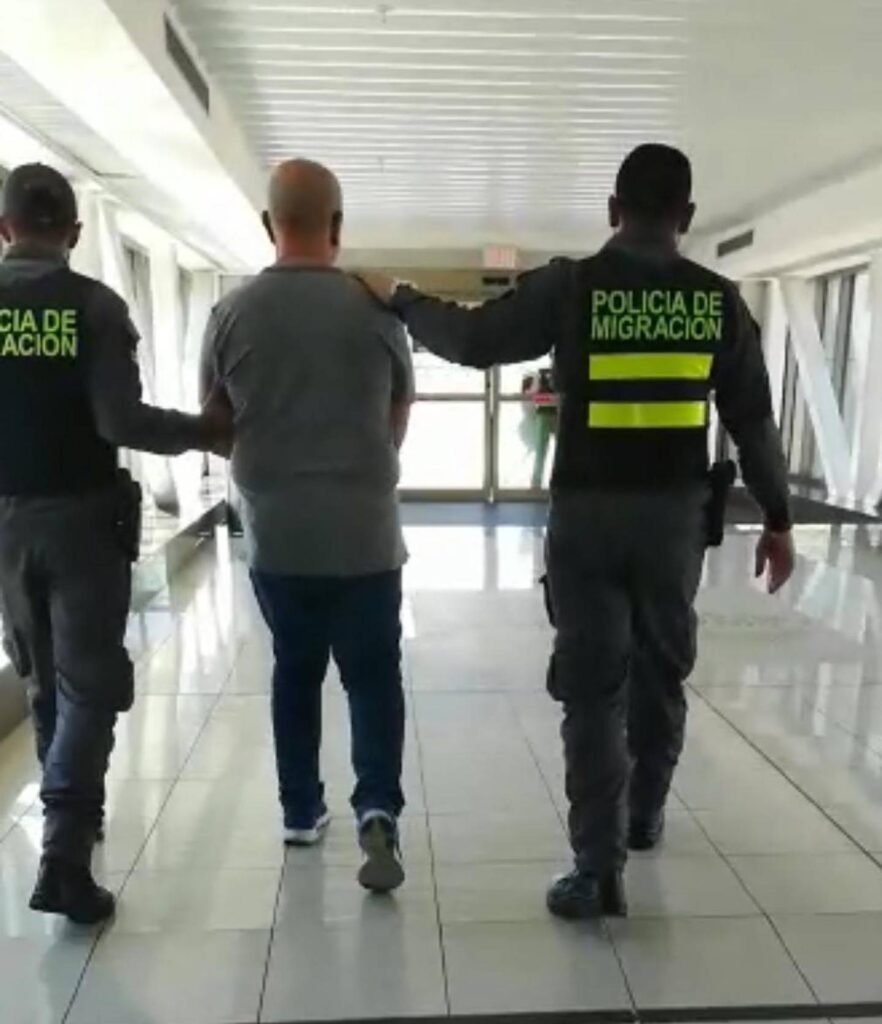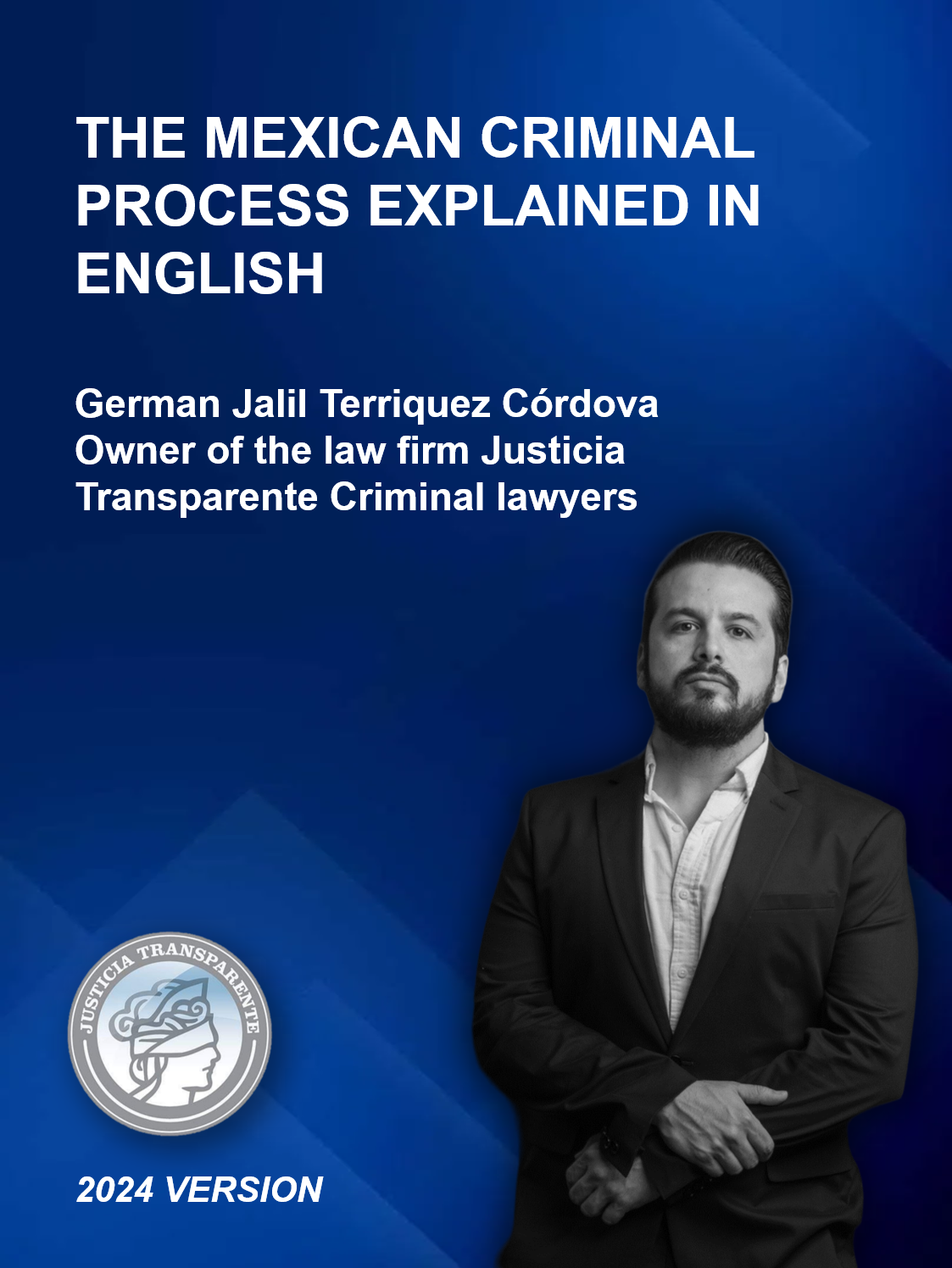
Arrests at Mexican airports?Mexican airports have had notable increases in the last 4 years of arrests at their airports, American, European, South American and Asian citizens have been arrested upon arrival at any of the airports in the Mexican Republic regularly for violations of gun laws, possession of any drug such as cannabis or marijuana and carry amounts in cash, national or foreign checks, payment orders or any other document receivable or a combination of them, greater than the equivalent in the currency or coins in question of thirty thousand dollars of the United States of America.
These arrests increased because the Mexican government ordered the Mexican army to take care of the airports and review security, so tourists who regularly come to Mexico for tourism are unaware of Mexican laws and their prohibitions, in many cases due to lack of communication from the governments of their countries about the crimes that can be committed in Mexico or due to ignorance or lack of investigation of those who come to Mexico.
The reality is that in Mexico, ignorance of the law does not prevent the authorities from arresting people at airports and sending them to the offices of the prosecutor for the purpose of investigating the commission of the crimes committed, which is why this guide will help you. It will help you learn more about these stressful arrests.
TABLE OF CONTENTS
- Arrest at the airport for violation of gun laws.
- Arrest at the airport for drug possession.
- Arrest at the airport for smuggling
Arrest at the airport for violation of gun laws.
Entering Mexico with a weapon is illegal, Mexican laws only allow possessing guns in homes with a permit from the Mexican army.
Accused a relative of a crime in Mexico? Do you need to know if it is a crime to bring weapons into Mexico? Do you need to know if it is a crime to bring marijuana into Mexico? The prosecutor is accusing me of having committed a crime that I did not commit? Has your loved one been in jail in Mexico for years?
If you are in one of these situations, hire an online consultation.
When a person is arrested at a Mexican airport for violating gun laws in Mexico, the first thing that will happen is the following.
If you do not speak Spanish, an interpreter who is fluent in the language you speak will be found to explain the reason for your arrest. If there is no person at the airport who knows your language, it will be explained to you when you arrive at the prosecutor offices.
You will have the right to contact the consulate of your country in order to request legal support from your country and to recommend lawyers who can help you solve your problem. Article 151 of the Code that regulates Mexican criminal procedure establishes this rule:
“Article 151. Consular assistance In the event that the detainee is a foreigner, the prosecutor will let him know without delay and will guarantee his right to receive consular assistance, so he will be allowed to communicate with the Embassies or Consulates of the country regarding those that are national; and must notify the Embassies or Consulates themselves of the arrest of said person, recording proof of this, unless the accused accompanied by his or her Defender expressly requests that this notification not be made.
The prosecutor and the police must inform whoever requests it, after identification, if a foreigner is detained and, if applicable, the authority at whose disposal he or she is located and the reason.”
Different types of crimes for carrying weapons for exclusive use of the army at the airport:
Carrying one or more of the following firearms without permission from Secretary of National Defense
1.- Semi-automatic pistols with a caliber no greater than .380 (9mm.), with the exception of .38 Super and .38 Commando caliber pistols, and also in 9 mm calibers. the Mausser, Luger, Parabellum and Commando, as well as similar models of the same caliber as the expected ones, from other brands.
2.- Revolvers in calibers not higher than .38 Special, with the exception of .357 Magnum caliber.
3.- Pistols, revolvers and .22 caliber rifles, round fire.
4.- .38 caliber pistols for Olympic or competition shooting purposes.
5.- Shotguns in all their calibers and models, except those with a barrel length of less than 635 mm. (25), and those of caliber greater than 12 (.729 or 18. 5 mm.).
6.- 3-barrel shotguns in the calibers authorized in the previous section, with a barrel for metallic cartridges of different calibers.
7.- High-powered, repeating or semi-automatic rifles, not convertible to automatic, with the exception of 30” caliber carbines, rifles, carabiners and .223” caliber carbines, 7 and 7.62 mm. and .30 caliber Garand rifles.
8.- High-powered rifles of calibers greater than those indicated in the previous paragraph, with special permission for their use abroad, in hunting large game that does not exist in the national fauna.
9.- The other weapons of sporting characteristics in accordance with the legal regulations of hunting, applicable by the State Secretariats or Organizations that have interference, as well as the national and international regulations for competition shooting.
10.- .357 Magnum caliber revolvers and those greater than .38 Special.
11.- 9 mm caliber pistols. Parabellum, Luger and the like, the .38 Super and Commando, and those of higher calibers.
12.- Rifles, carabiners, carbines and tercerolas in caliber .223”, 7 mm., 7.62 mm. and .30” caliber carbines in all its models.
13.- Pistols, carbines and rifles with a burst system, submachine guns, submachine guns and machine guns in all their calibers.
14.- Shotguns with a barrel length of less than 635 mm. (25), those with a caliber greater than 12 (.729 or 18.5 mm) and gas launchers, with the exception of those for industrial use.
15.- Ammunition for the aforementioned weapons and cartridges with special devices such as tracers, incendiaries, perforating, smoke, gas expansives and those loaded with shots greater than 00 (.84 cms. in diameter) for shotguns.
16.- Cannons, artillery pieces, mortars and tanks with their attachments, accessories, projectiles and ammunition.
17.- Rocket projectiles, torpedoes, grenades, bombs, mines, depth charges, flamethrowers and the like, as well as the devices, artifices and machines for their launching.
18.- Bayonets, sabers and spears.
19.- Ships, submarines, boats and seaplanes for naval warfare and their weapons.
20.- War aircraft and their weapons.
21.- War devices, gases and chemical substances for exclusively military application, and various devices for use by the armed forces.
In general, all weapons, ammunition and materials intended exclusively for war.
For the purposes of greater understanding, the concept of Carrying firearms means carrying the firearm outside the residence address, that is, the possession occurs when you carry the weapon with you in your car or with you outside your home.
Penalties for carrying firearms without a license
- Penalty: from 3 to 8 years in prison.
- Aggravated by carrying two or more weapons: could reach a maximum penalty of up to 13 years and 4 months in prison.
- Weapons that apply to this crime : Those indicated from number 1 to 9 of the list that appears at the beginning of this article.
Penalties for carrying firearms for the exclusive use of the army without a license.
- Penalty: from 3 months to a year in the case of bayonets, sabers and spears.
- Penalty: from 3 to 10 years in prison if it is about the firearms. indicated in number 10 and 11 of the list that appears in this article.
- Penalty: from 4 to 15 years if it is one of the firearms indicated from numbers 12 to 21 of the list that appears above.
How to defend gun arrest cases in Mexico
- convince the judge that the arrest was illegal: In Mexico, when people are arrested, they are sent to the prosecutor’s offices for the first 48 hours and later to the court where the prosecutor will seek to convince the judge about the legality of the arrest and subsequently seek prove the crime and his probable responsibility in the case.
The first thing you have to do is hire a lawyer to try to convince the judge that the arresting police officers arrested you illegally.
Mexican criminal procedure establishes that arrest is legal when the following circumstances occur:
Article 146. Cases of legal arrest: A person may be arrested without a court order in case of legal arrest. It is understood that there is legal arrest when:
I. The person is arrested at the time of committing a crime, or
II. Immediately after committing it, he or she is arrested, by virtue of the fact that: a) He or she is caught committing the crime and is persecuted materially and uninterruptedly, or b) When the person is pointed out by the victim or offended party, an eyewitness to the events or whoever intervened with she in the commission of the crime and when she has in her possession instruments, objects, proceeds of crime or there is information or evidence that gives reason to presume that she participated in it.
For the purposes of section II, subsection b), of this precept, it is considered that the person has been detained in flagrante delicto, as long as, immediately after committing the crime, the search or location has not been interrupted.
- Seek to prove that you are not responsible for carrying the weapon or that there is a reason that excludes the crime: In the event that the Judge has determined that your arrest is legal, the prosecutor must subsequently prove that you are responsible for carrying the weapon with you. Certainly at this stage of the session before the judge it will be difficult to convince the judge that you had no participation, however the law establishes ways to convince the judge that you have no responsibility in the event, the most common strategies are:
- justify that the arresting agents lied based on the accused facts.
- Justify that the gun was not in your possession.
- Justify that you have a permit issued by the Mexican army to carry the gun.
- Justify that you were under the false idea that it was legal to carry gun in Mexico.
- Request the judge to release the case: This argument by the defense of the arrested person is of utmost importance, since it will seek to convince the judge to release the case with the payment of a guarantee or some measure that helps. to establish the obligation of the accused to appear at trial.
In these cases it is extremely important to have a bilingual criminal lawyer expert in the matter to be able to establish this circumstance before the judge, this because the situation of being a foreigner makes the case difficult, this because Mexican law is very express in point out that people who do not live in Mexico have a high risk of flight, which means that if they are released they will no longer respond to the charges they have been accused of.
Arrest at the airport for drug possession.
The problem with airport arrests is that the crime for which these cases are regularly investigated is the introduction of drugs into Mexico, which is a highly punishable crime in Mexico, this is the article that punishes this crime.
Article 194.- A prison sentence of ten to twenty-five years and a fine of one hundred to five hundred days will be imposed on the
that:
II.- Introduce or extract from the country any of the narcotics included in the previous article,
even if it was momentarily or in transit.
In these cases, the best strategy that you should follow together with your lawyer is to try to convince the prosecutor that the drugs you have with you are for personal use, however, Mexican health law also establishes certain drugs and quantities that can be intended for personal use, which are the following.
- 1. opium (2 grams): This drug is indicated in the Mexican general health law as a legal drug for personal consumption, so any person, whether Mexican or foreign, can have opium up to 2 grams for personal use.
- 2. Heroin (50 milligrams ): The Mexican public health law allows anyone to carry this amount of heroin with them without it being a crime, so you can possess it anywhere in the Mexican Republic.
- 3. Cannabis Sativa, Indica or Marijuana (5 grams): The drug known as marijuana is very common, however the small amount allowed by Mexican law has caused several arrests for possessing more than what is established by the general health law.
- 4. Cocaine (500 milligrams)
- 5. LSD (0.015 milligrams)
- 6. MDA or love pill (40 milligrams)
- 7. MDMA also known as ecstasy or molly (40 milligrams)
- 8. methamphetamine (40 milligrams)
Any other drug that is not among those listed above is illegal to possess, even if it is intended for your staff.
Within the offices of the public ministry there is the possibility of establishing evidence that tries to justify that the drugs are intended for personal use, however it will be very important to do so before being sent before the judge, since there are some courtesies in Mexico who consider that bringing drugs through airports, even for personal use, is considered the introduction of narcotics with penalties of 10 to 25 years in prison.
Arrest at the airport for smuggling
Smuggling is a crime considered not serious by Mexican law, so in these cases we can reach an agreement with the Mexican Treasury in case of being arrested for this crime.
The federal tax code establishes this crime, which is what is used when tourists are arrested at Mexican airports.
“The person who does not declare at customs when entering or leaving the country, who carries with him amounts in cash, national or foreign checks, payment orders or any otherdocument receivable or a combination of them, greater than the equivalent in the currency or currencies ofThirty thousand dollars of the United States of America will be punished with a prison sentence.from three months to six years. In the event that a conviction is issued by a competent authorityWith respect to the commission of the crime referred to in this paragraph, the excess of the amount before mentioned will become property of the federal treasury, unless the person in question demonstratesthe legal origin of said resources”
In these cases the defense strategies are the following:
- If you have $30,000 or more, try to convince the judge that you were not aware of the legality in Mexico.
- Try to convince the judges that the police have lied in the police report about how the arrest happened and the events they narrate.
- If the arrest was for a check or document, seek to justify before the judge that that check is uncollectible in Mexico.
- Justify that the arrest was illegal.
If you do not convince the judge of some of these situations, it is important to point out that it is possible to make an agreement with the victim, which in this case is the Mexican hacienda for the purposes of being able to pay the taxes omitted in this event and with this you will be able to close the case. regain your freedom and not have a criminal record.
The Mexican criminal process explained in English


